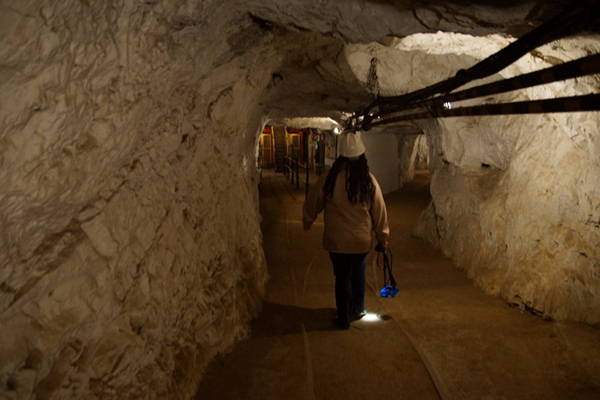-
Where we come from
Building on over 100 years of the Wits School of Mining foundations, the Centre for Sustainability in Mining and Industry (CSMI) was launched in 2005. The WMI offers an established programme of research facilitated by research leads that supervise MSc and PhD students, supported by a network of associates. Now with edge-leading technology research and experientially-sensitive approaches to stakeholder engagement, the WMI stands cognisant in our present, reimaging new futures.

Background
The Wits Mining Research Institute (WMRI) was launched by then Mineral Resources Minister, Susan Shabangu, in September 2012, as one of six 21st Century Institutes established by Wits. Emerging from the foundations of the Centre for Sustainability in Mining and Industry (CSMI) created in 2005, and funded initially by industry, the Wits Mining Institute became an entity in (2018?)
The Sibanye Stillwater DigiMine strategy commenced in 2016. DigiMine was subsequently launched on 28 March 2018 by Neal Froneman, the CEO of Sibanye-Stillwater. The CSMI was adopted into the WMI in 2018 and has transitioned to become the Responsible Mining Laboratory (RML), headed by Dr Ingrid Watson. The SAMERDI Successful Applications of Technologies Centred Around People (SATCAP) and Real-time Information Management Systems (RTIMS) Research Centres were created in 2021, with funding from the Department of Science and Innovation (DSI), in partnership with the Mandela Mining Precinct (MMP).
Throughout its history, the WMI in its various forms has provided essential and novel development programmes. The Skills Accelerator is the hub of these activities, supporting the whole of the WMI.
-
Where we are
Carrying the mantle of over 100 years of mining research at Wits, the Wits Mining Institute (WMI) holds at its core the sustainable provision of minerals to support future wellbeing. Research, partnerships, events, and other activities are focused on contributing to the emergence of a 21st century innovative business model, through in-depth understanding of large multi-disciplinary and complex questions in the sector. Some of the complexities with which we are working are the well-being of mineworkers, the interaction between technology and humans, what responsible mining means in practice, and real-time reporting of critical information.
Our five centres investigate these questions, challenges and opportunities through different lenses, while developing the human and technological capacity to address them. A core team of dedicated research and administrative staff, students, associates and other thought-leaders across five centres are building a collaborative living laboratory for the development of people and technology.
The Wits Mining Institute is a unique learning and development hub that investigates foundational insights for all mineral sector stakeholders. Gathering skills from a range of disciplines, the WMI facilitates the unearthing of innovative solutions for all involved in the sectors’ future.
"We aim to enhance our culture of innovation, entrepreneurship and technology commercialisation, and the policies that guide these activities, while creating strategic research white papers that inform government policy".
The WMI 5 centres are listed below:







